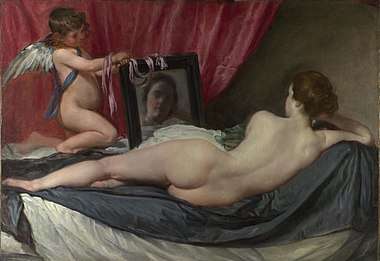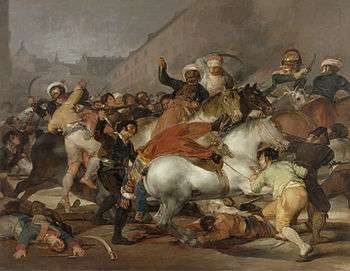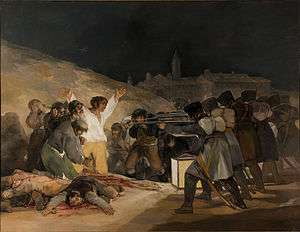The Happy Thieves
The Happy Thieves is a 1961 American crime/comedy-drama film starring Rex Harrison and Rita Hayworth and directed by George Marshall. The film is based on the novel The Oldest Confession by Richard Condon. The film was poorly received, with star Harrison later describing it as "absolute rubbish".
| The Happy Thieves | |
|---|---|
 | |
| Directed by | George Marshall |
| Written by | John Gay |
| Based on | The Oldest Confession by Richard Condon |
| Starring | Rita Hayworth Rex Harrison Joseph Wiseman |
| Music by | Mario Nascimbene |
| Cinematography | Paul Beeson |
| Edited by | Oswald Hafenrichter |
| Distributed by | United Artists |
Release date | December 20, 1961 (Chicago, Illinois)[1] January 1962 (Nationwide) |
Running time | 88 mins. |
| Country | United States |
| Language | English |
Plot



A painting belonging to Duchess Blanca (Alida Valli) is stolen from a castle in Spain by the clever Jimmy Bourne (Rex Harrison) and his partner in crime, Eve Lewis (Rita Hayworth). It is stolen from the thieves, however, by Dr. Victor Muñoz (Grégoire Aslan), the cousin of the duchess.
Eve wants to go straight, but Muñoz blackmails her and Jim, demanding they steal another valuable artwork, a Goya, from the Prado museum. A duplicate is created by Jean Marie Calbert (Joseph Wiseman) and a switch is planned during the farewell bullfight of a matador (Virgilio Teixeira) whom the duchess intends to wed.
Munoz shoots the matador. During the ensuing chaos, Jim and Eve switch the paintings. They also find Munoz dead, killed in vengeance by the duchess. Jim is brought to justice and sentenced to 5 years in prison. Eve vows to wait for him.
Cast
- Rita Hayworth as Eve Lewis
- Rex Harrison as Jimmy Bourne
- Joseph Wiseman as Jean Marie Calbert
- Alida Valli as Duchess Blanca
- Grégoire Aslan as Dr. Victor Muñoz
- Virgilio Teixeira as Cayetano the Bullfighter (credited as Virgilio Texera)
- Peter Illing as Mr. Pickett
- Britt Ekland as Mrs. Pickett (credited as Britta Ekman)
- George Rigaud as Spanish Police Inspector
- Gérard Tichy as Antonio, Prado Museum Guard
Production notes
The film was produced by Hayworth's production company Hillworth Productions A.G., and distributed by United Artists. The film's executive producer was Hayworth's then-husband James Hill.[1]
Music
During a test bullfight, a melody based on Gernikako Arbola can be heard.
See also
References
- Munden, Kenneth White, ed. (1997). The American Film Institute Catalog: Of Motion Pictures Produced in the United States : Feature Films, 1921-1930, Part 1. University of California Press. p. 453. ISBN 0-520-20969-9.